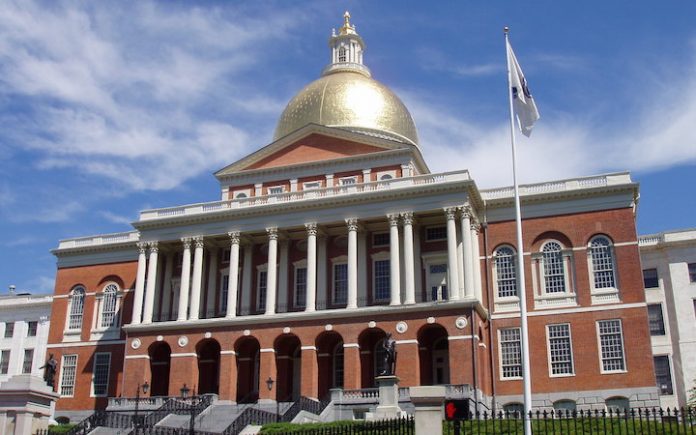The Massachusetts House of Representative overwhelmingly passed a bill to ban conversion therapy on minors on Wednesday this week. The legislation sailed through with a vote of 147 to 8.
Should the house approve and Governor Baker sign, the Bay State would join all states in New England except Maine to ban the dangerous practice against LGBT youth, becoming the 16th state in the country to do so. The legislation passed by both houses on Beacon Hill last summer but failed to reach the governor’s desk before the end of last year’s session.
“Years ago on LGBT issues, we would struggle to get just 50 percent of the votes that we needed to pass legislation,” Arline Isaacson, cochair of the Mass. Gay and Lesbian Political Caucus, told WBUR radio 90.9 FM. “Now, legislators have come to realize that conversion therapy is a significantly bad, harmful treatment for young people.”
Reports WBUR:
“Ultimately, we all know this bill will ensure that children receive therapy in a healthy, evidence-based and medically sound manner, not one which fosters an atmosphere of self-hate, prejudice and intolerance,” Rep. Kay Khan, who authored the legislation, said before the vote. “Massachusetts has always been a trailblazer in advancing civil rights and eliminating discrimination in health care settings for the LGBTQ community. This bill is a necessary extension of these historic commitments.”
The House and Senate passed a similar bill in 2018 but could not get it to Gov. Charlie Baker’s desk before formal lawmaking session ended. Baker said this year he’s “inclined to support” the bill, which is expected to clear the state Senate.
Seven of the House’s 32 Republicans — Reps. Donald Berthiaume, David DeCoste, Shawn Dooley, Peter Durant, Marc Lombardo, Joseph McKenna, and Michael Soter — opposed the bill in an initial vote. Later, the House reconsidered its vote and took a second recorded vote on the bill, which was again approved 147-8, but with independent Susannah Whipps of Athol voting for the bill after being recorded against it on the initial vote and Rep. Nicholas Boldyga (R-Southwick) voting against the bill after initially voting for it.
Republican Rep. Randy Hunt voted present on both votes.
Lombardo and Dooley offered amendments to the bill to exempt talk therapy from the ban and to extend restrictions to unlicensed practitioners. The House ruled the amendments were beyond the scope of the bill because they were based on a Dooley version of the legislation (H 110) that was not released by the Joint Committee on Children, Families and Persons with Disabilities for a full House vote.
“The reality is we are legislating what can be said between a doctor and his patient in the sanctity of that relationship,” Dooley said on the floor. “Let’s say an 8-year-old boy comes in and says, ‘I’m an 8-year-old girl.’ Maybe that therapist — and many therapists I’ve spoken to have brought this up — wants to push back a little bit. Maybe that child isn’t transgender, maybe that child’s gay, maybe that child’s bi. Why not give every opportunity for that therapist to explore that? Why can’t the therapist say, ‘No, you’re not?'”
Khan, who chairs the Joint Committee on Children, Families and Persons with Disabilities, said the legislation protects youth while upholding First Amendment free-speech rights and that similar bills have been upheld as constitutional in appeals courts.
Other representatives, some of them openly gay, condemned the practice of conversion therapy, on multiple occasions calling it a “barbaric practice” that forces a population already prone to greater risks of depression to doubt their identities. Khan’s office pointed to a 2018 study that found LGBTQ youth who underwent conversion therapy had twice the rate of attempted suicide of similar individuals who did not face the practice.
“Health care providers have a fiduciary duty to do no harm to their clients,” said Rep. Sarah Peake, who recounted the fear she felt coming out as a lesbian to her parents. “Don’t be mistaken: conversion therapy does harm to their clients. Conversion therapy harms their clients through shaming, through increasing self-loathing, through bringing to the foreground feelings of self-hatred, inadequacy, and the horrible feeling for any kid: the feeling of being other.”
Gov. Baker has indicated he would sign the bill into law.









